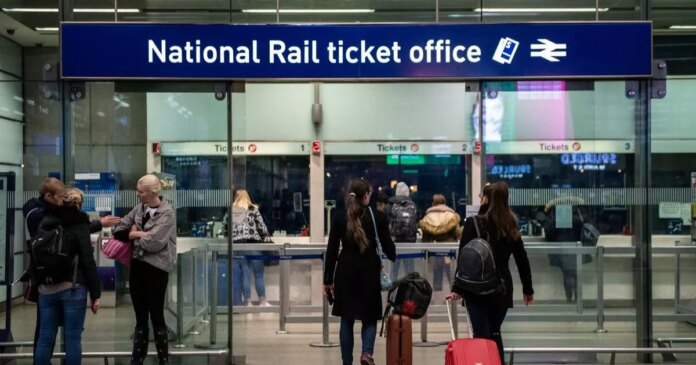Train fares in England are projected to rise by 5.8% next year, impacting passengers and commuters significantly. This increase follows a one-percentage-point surge above the Retail Price Index (RPI) in July 2024. If the same methodology is applied to train tickets in the upcoming year, the cost of rail travel is set to escalate by 5.8%.
Earlier this year, train fares in England surged by 4.6% in March, affecting regulated rail fares like season tickets, anytime day passes, and off-peak and super off-peak tickets. Conversely, unregulated fares, which include advance tickets, first-class tickets, and others, are determined by individual train companies. As reported by the Office for National Statistics, the RPI climbed to 4.8% in July.
While the Government has not yet confirmed the exact increase in train fares for England next year, the Department for Transport (DfT) assured that updates on regulated fare adjustments will be provided later this year. Unlike England, Scotland, Wales, and Northern Ireland have the autonomy to set their own fare increases for regulated services.
Railfuture, a pressure group, expressed concerns over potential fare hikes, citing the declining punctuality of trains in Britain, which recently hit a five-year low. Data from the Office of Rail and Road revealed that only 66.7% of trains reached scheduled stops within a minute of the timetable in the year leading up to July 19, marking the poorest performance since May 30, 2020.
A spokesperson from the DfT emphasized the priority of restoring reliability to the railway system and highlighted the commitment to passenger-centric plans under public ownership and Great British Railways (GBR). Although decisions on next year’s rail fares are pending, the aim is to strike a balance between affordability for passengers and taxpayers.
Furthermore, this year saw an increase in most railcards, with prices climbing by £5 (17%) on average. To mitigate commuting costs, passengers are advised to plan journeys well in advance to secure discounted fares, consider splitting journeys to save on expenses, and explore rail card options offering savings ranging from 30% to 50% on fares. For frequent travelers, investing in season tickets or flexi tickets could yield substantial savings, particularly for those who travel regularly.
